- Nutrition must be personalized for every individual in order to be successful.
- There are many voices in social media, news sources, even medical doctors who will try to sell their one-size-fits-all health products for weight loss, bone strength, muscle gain, heart health and even curing cancer. There are many good, artificial sources for vitamins and minerals. Many will claim to be organic, natural, with none of this or none of that. But, nothing beats the best source for our body’s longterm health like getting 5 servings of fruits and veggies per day. It’s essential to improve your relationship with food and it starts with getting enough fruits and vegetables in your diet.
- Research has shown the best “health supplements” for your body is a consistent variety of fruits and vegetables each day . This is the most effective way to get the vitamins, minerals and fiber for optimum health.
- The USDA MyPlate has a fantastic recommendation to obtain 1/2 your plate full of fruits and veggies. There are many benefits to both of these which will be state below from USDA website.

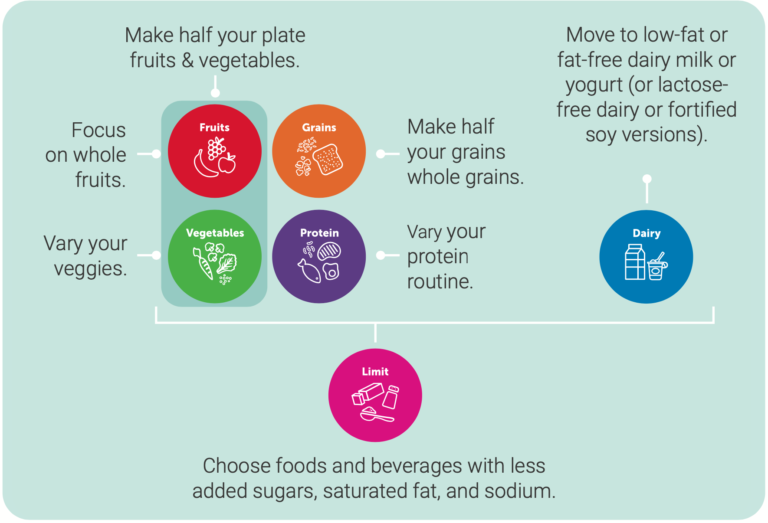
USDA - MyPlate

Fruits
Why is it important to eat fruit?
Eating fruit provides health benefits — people who eat more fruits and vegetables as part of an overall healthy diet are likely to have a reduced risk of some chronic diseases. Fruits provide nutrients vital for health and maintenance of your body.
Health Benefits
- As part of an overall healthy diet, eating foods such as fruits that are lower in calories per cup instead of some other higher-calorie food may be useful in helping to lower calorie intake.
- Eating a diet rich in vegetables and fruits as part of an overall healthy diet may reduce risk for heart disease, including heart attack and stroke.
- Eating a diet rich in some vegetables and fruits as part of an overall healthy diet may protect against certain types of cancers.
- Adding fruit can help increase intake of fiber and potassium which are important nutrients that many Americans do not get enough of in their diet.
Are you having a hard time getting Fruits into your diet?
Try Vary Your Fruit BINGO below, just print and play for a week.
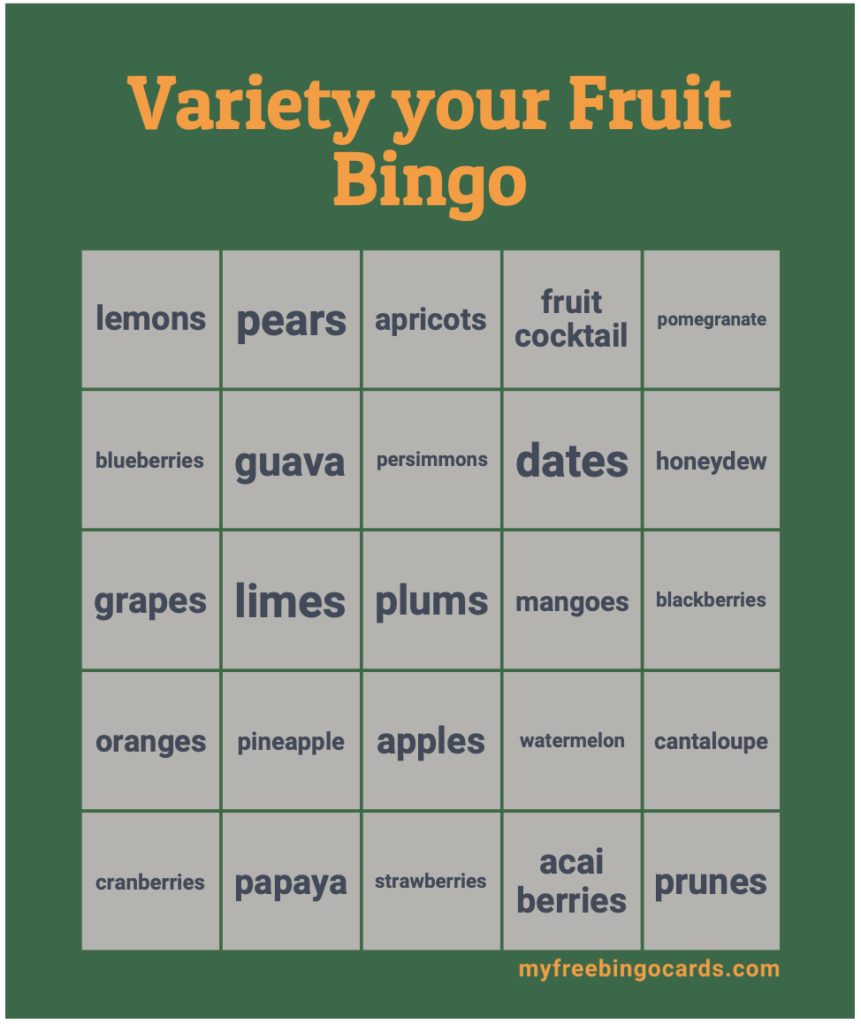
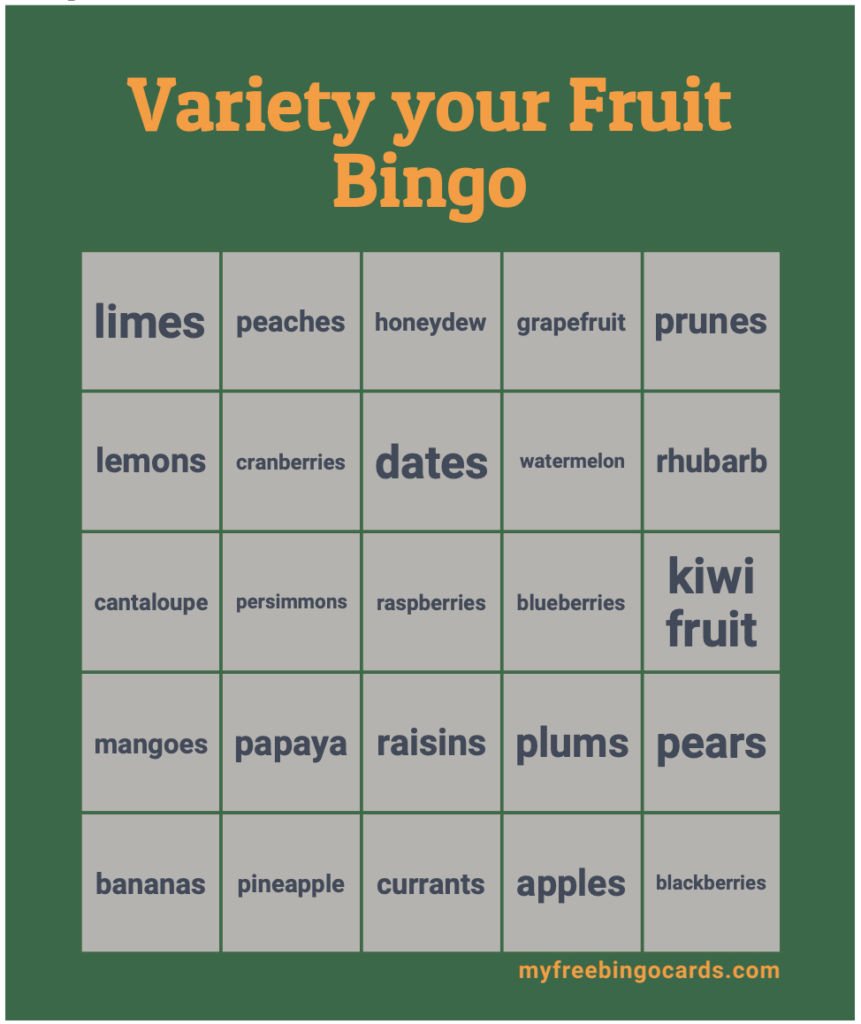
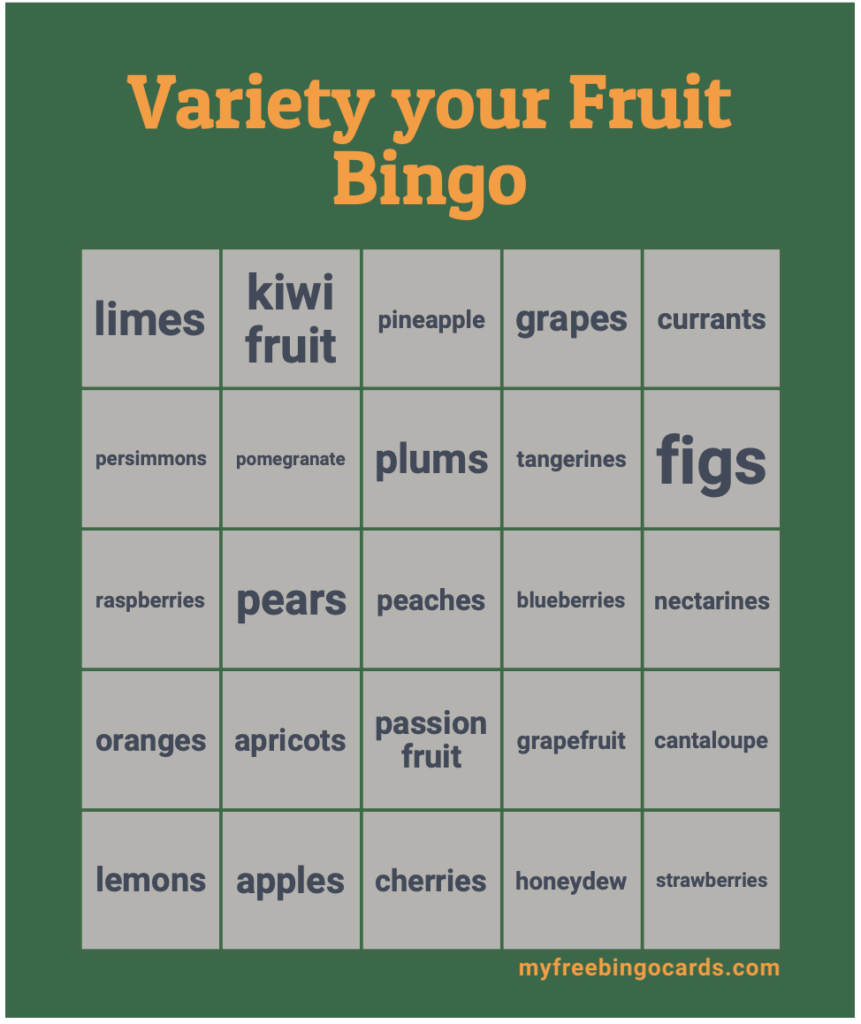
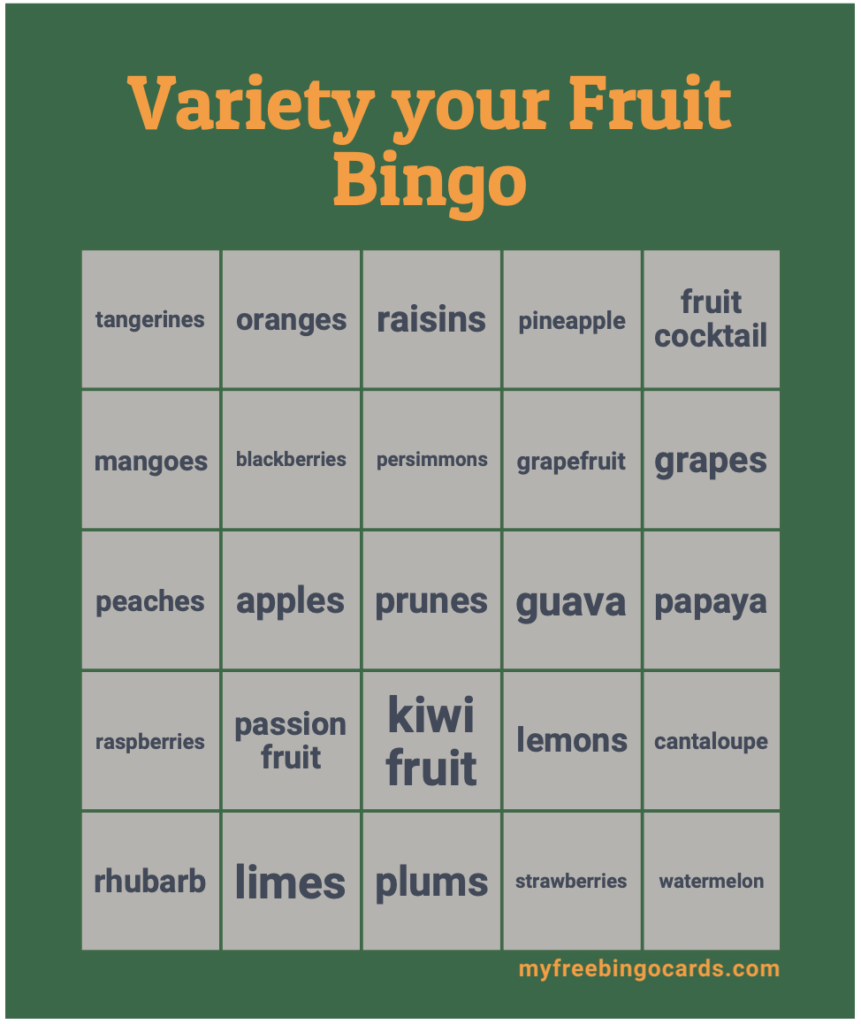
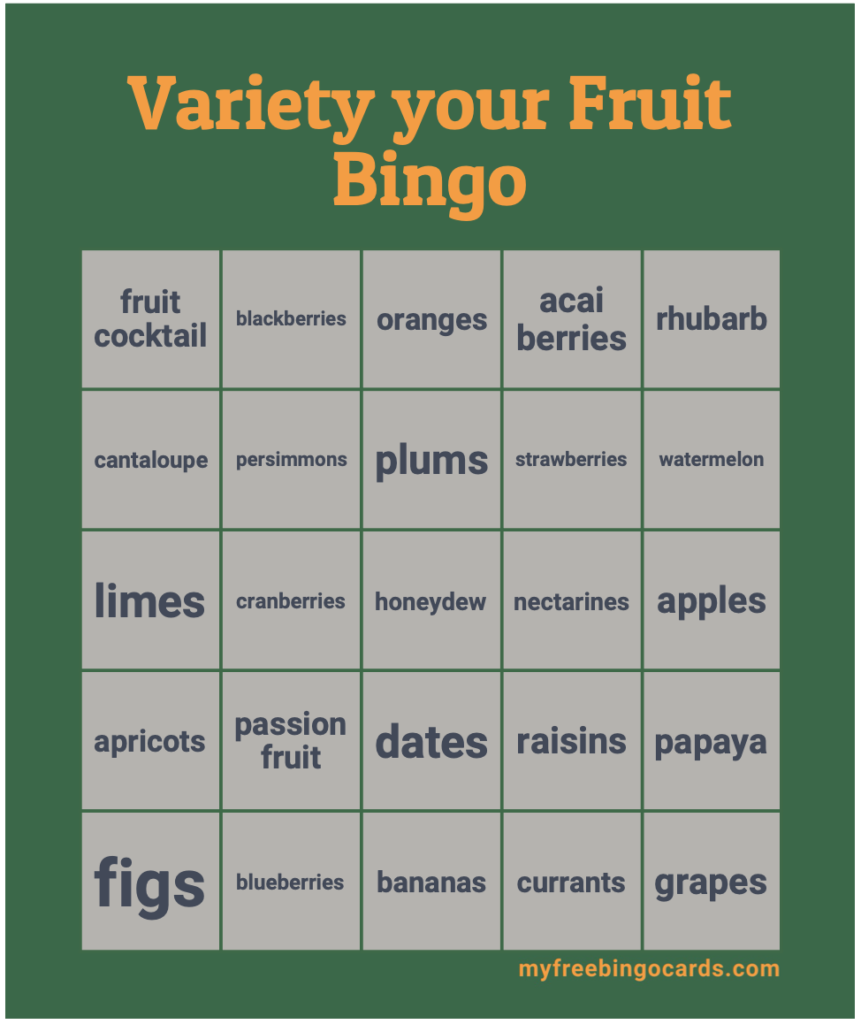
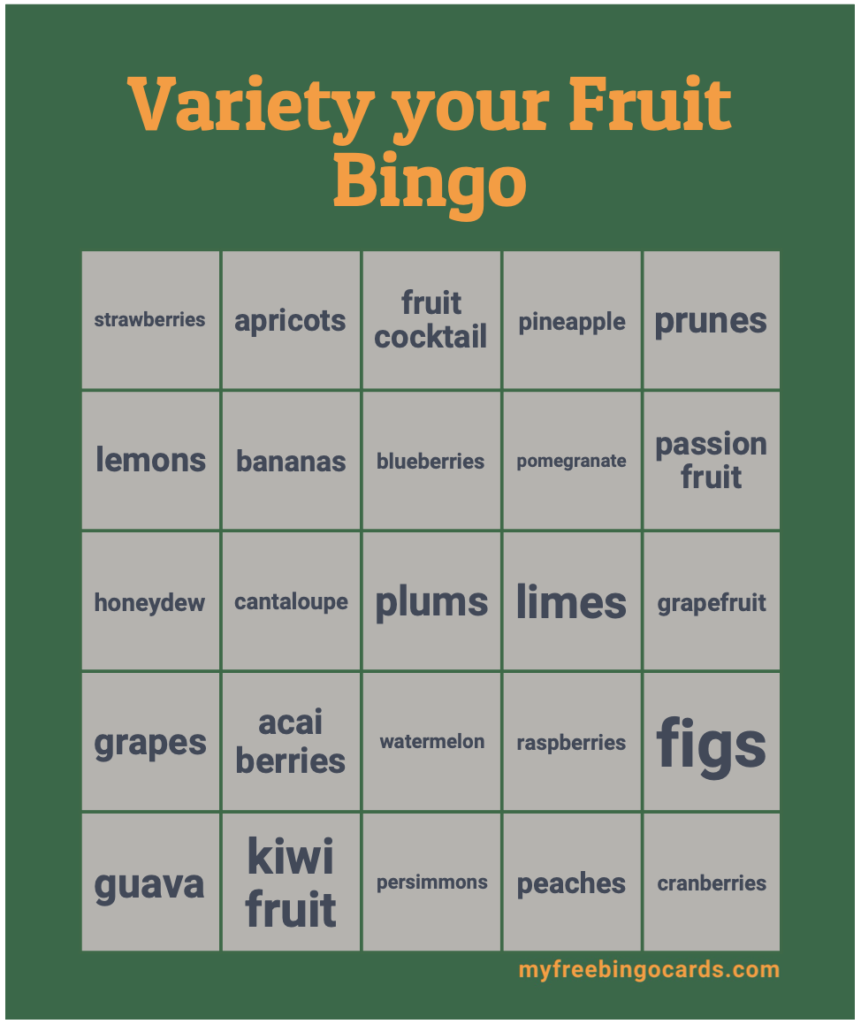

Vegetables
Why is it important to eat vegetables?
Eating vegetables provides health benefits — people who eat more vegetables and fruits as part of an overall healthy diet are likely to have a reduced risk of some chronic diseases. Vegetables provide nutrients vital for health and maintenance of your body.
Health Benefits
All food and beverage choices matter – focus on variety, amount, and nutrition.
- As part of an overall healthy diet, eating foods such as vegetables that are lower in calories per cup instead of some other higher-calorie food may be useful in helping to lower calorie intake.
- Eating a diet rich in vegetables and fruits as part of an overall healthy diet may reduce risk for heart disease, including heart attack and stroke.
- Eating a diet rich in some vegetables and fruits as part of an overall healthy diet may protect against certain types of cancers.
- Adding vegetables can help increase intake of fiber and potassium, which are important nutrients that many Americans do not get enough of in their diet.
Do you Find Getting Vegetables into your diet? Give this game a try
- New Veggies, Variety BINGO – If you are struggling with getting enough vegetables in your diet, print out one of the cards below and use it to track your intake for a week. Remember full servings of whole veggies are 1/2 cup cooked and 1 cup raw. No cheating your success with juices, the body benefits from the fiber.
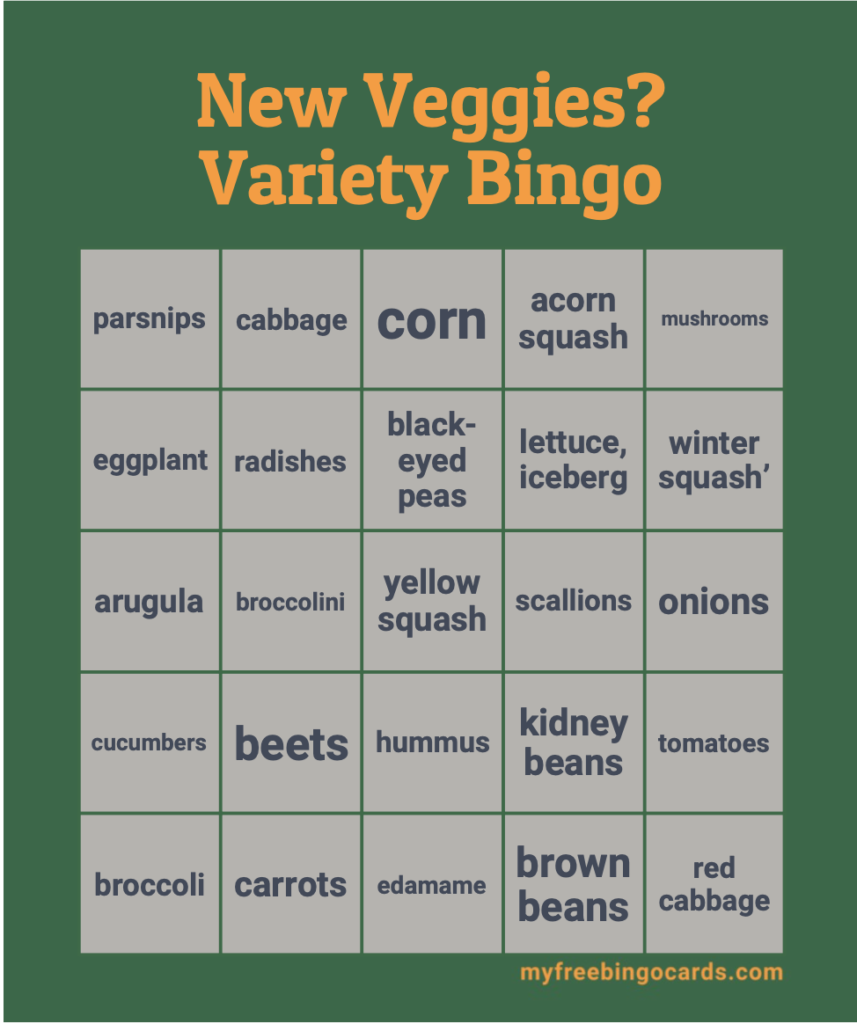
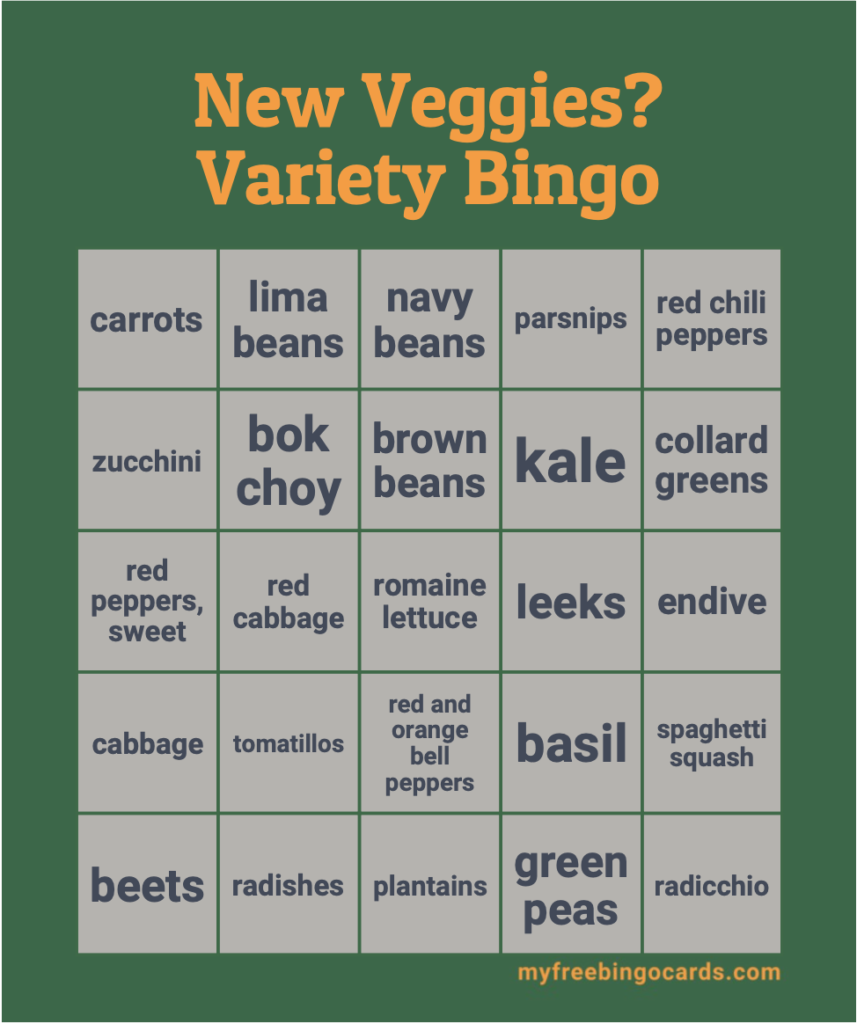
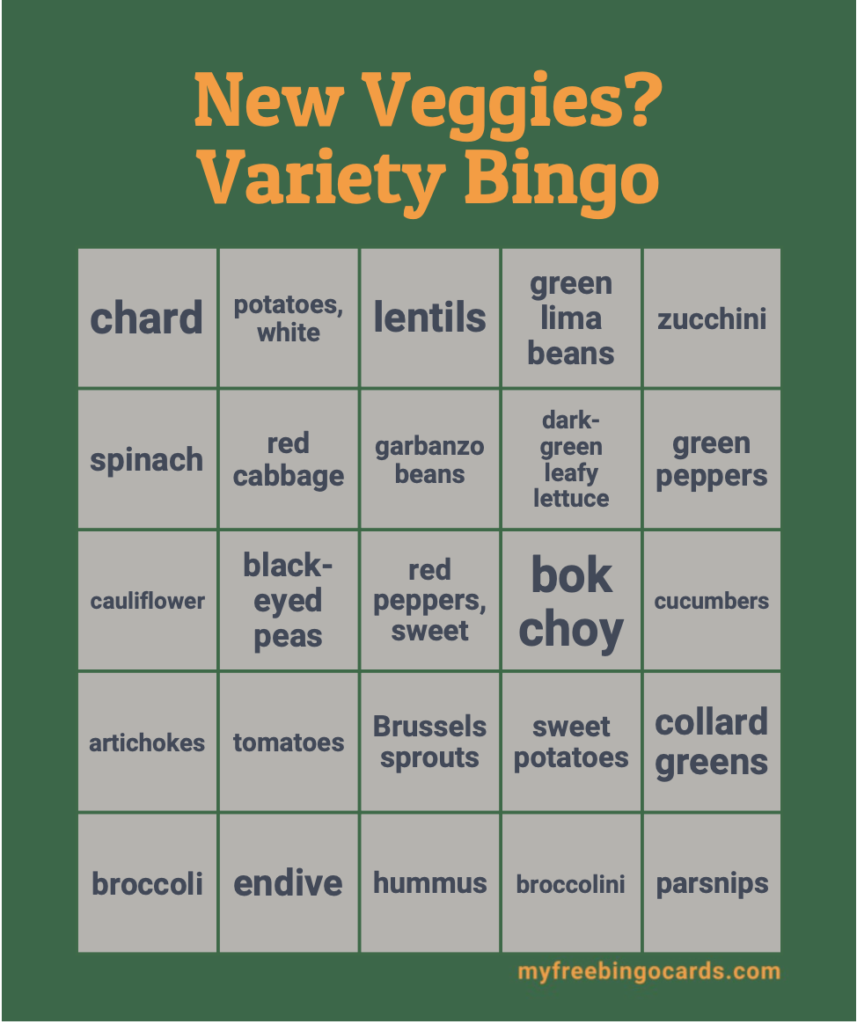
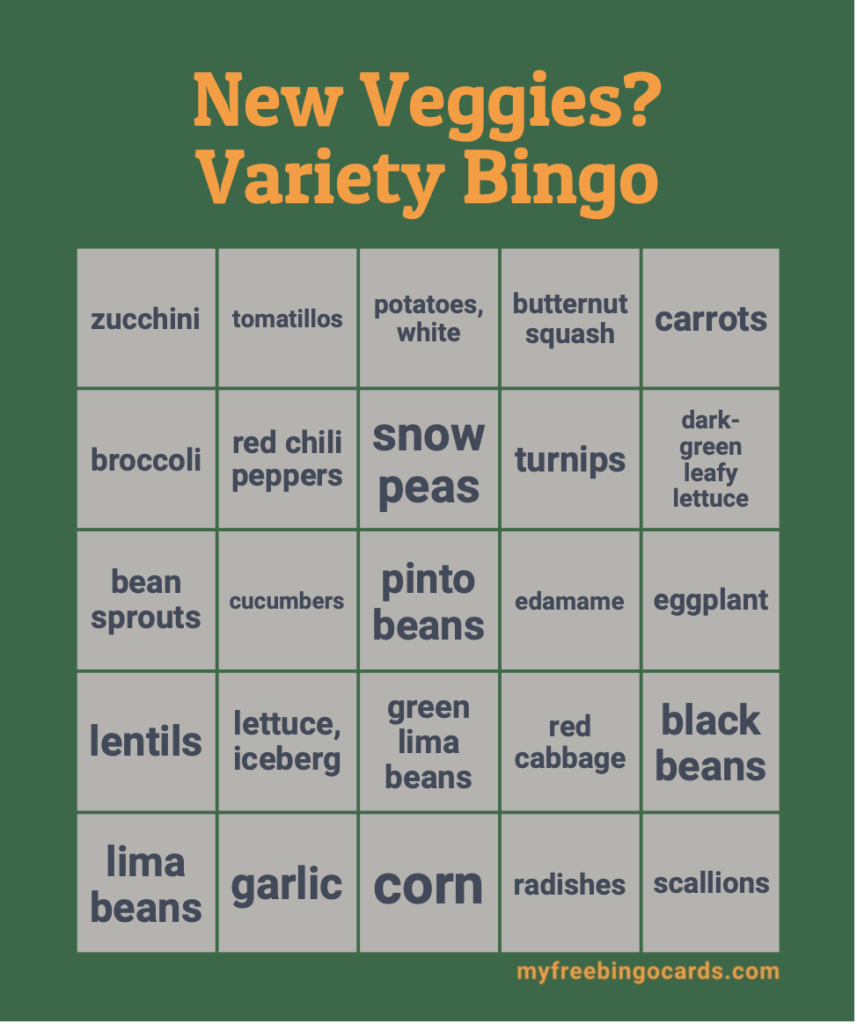
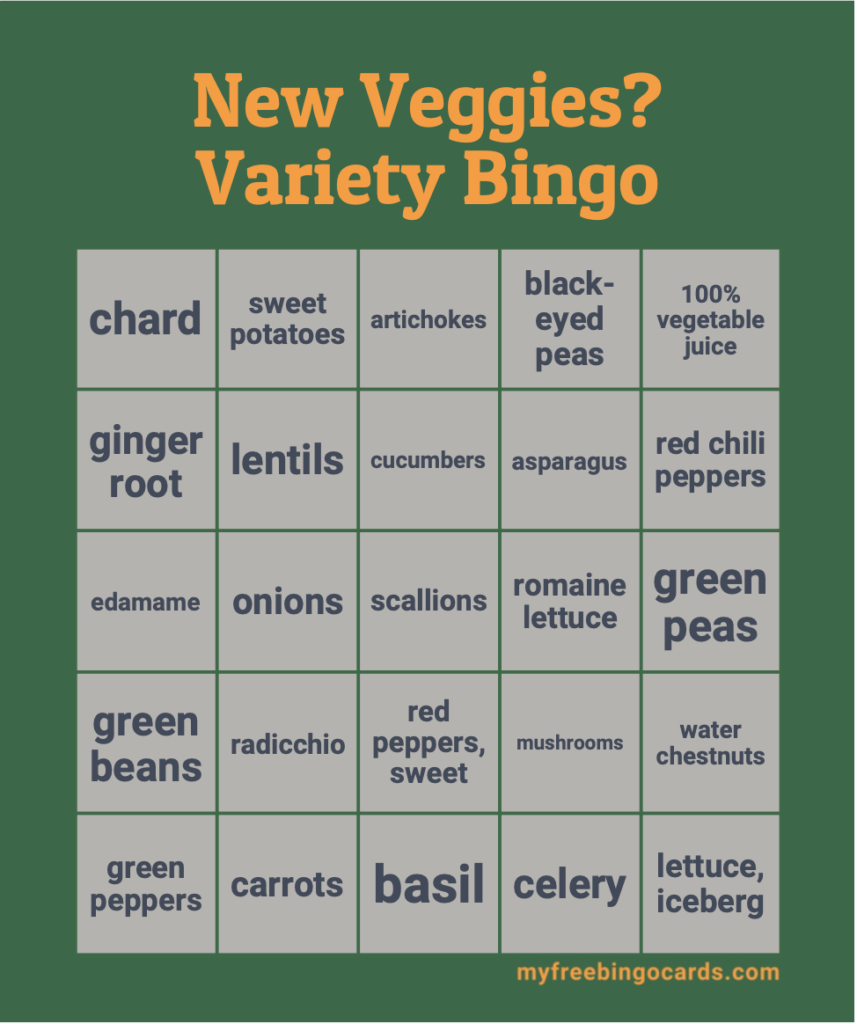
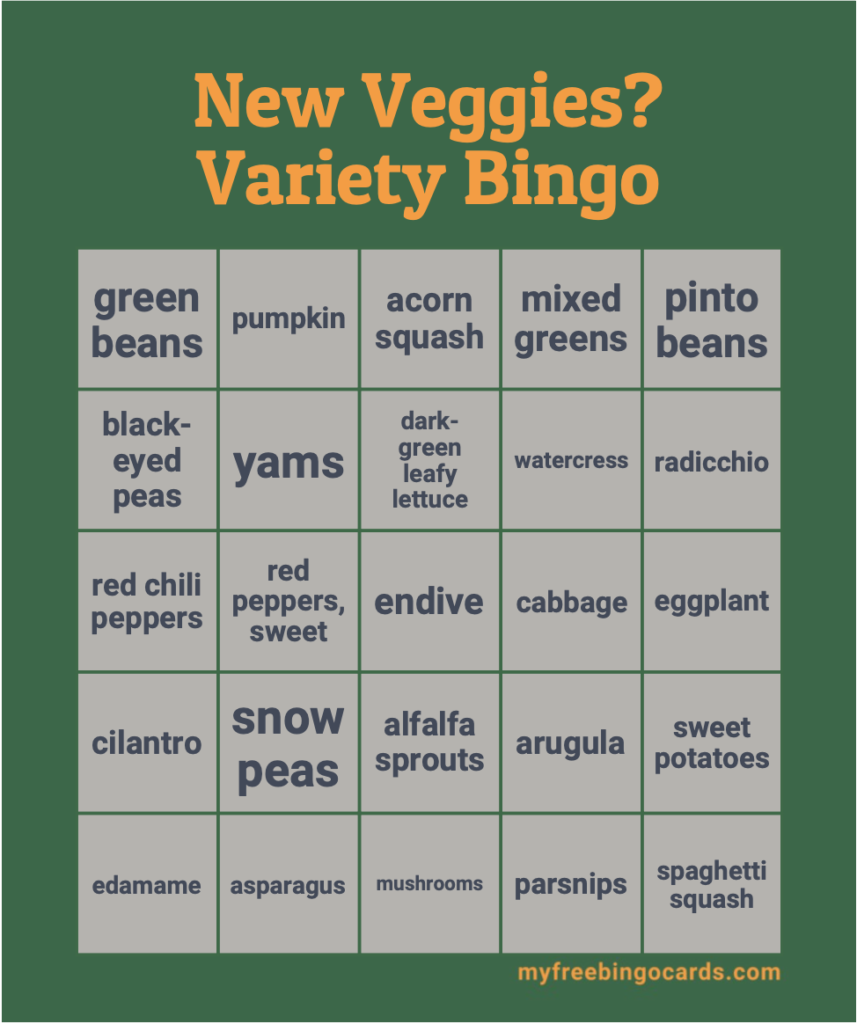
Dietary Guidelines for Americans
2020-2025
A team of specialists between medical doctors and trained Registered Dietitian Nutritionists come together to create the Dietary guidelines for Americans 2020 to 2025. The current theme is “Making every bite count with dietary guidelines”
Guidline #3 – Focus on meeting food group needs with nutrient-dense foods and beverages, and stay within calorie limits
An underlying premise of the Dietary Guidelines is that nutritional needs should be met primarily from foods and beverages—specifically, nutrient-dense foods and beverages. Nutrient-dense foods provide vitamins, minerals, and other health-promoting components and have no or little added sugars, saturated fat, and sodium. A healthy dietary pattern consists of nutrient-dense forms of foods and beverages across all food groups, in recommended amounts, and within calorie limits.
The core elements that make up a healthy dietary pattern include:
- Vegetables of all types—dark green; red and orange; beans, peas, and lentils; starchy; and other vegetables
- Fruits, especially whole fruit
Grains, at least half of which are whole grain - Dairy, including fat-free or low-fat milk, yogurt, and cheese, and/or lactose-free versions and fortified soy beverages and yogurt as alternatives
- Protein foods, including lean meats, poultry, and eggs; seafood; beans, peas, and lentils; and nuts, seeds, and soy products
- Oils, including vegetable oils and oils in food, such as seafood and nuts
References:
- www.myplate.gov
- www.myplate.gov/eat-healthy/food-group-gallery
- www.dietaryguidelines.gov/sites/default/files/2020-12/Dietary_Guidelines_for_Americans_2020-2025.pdf

